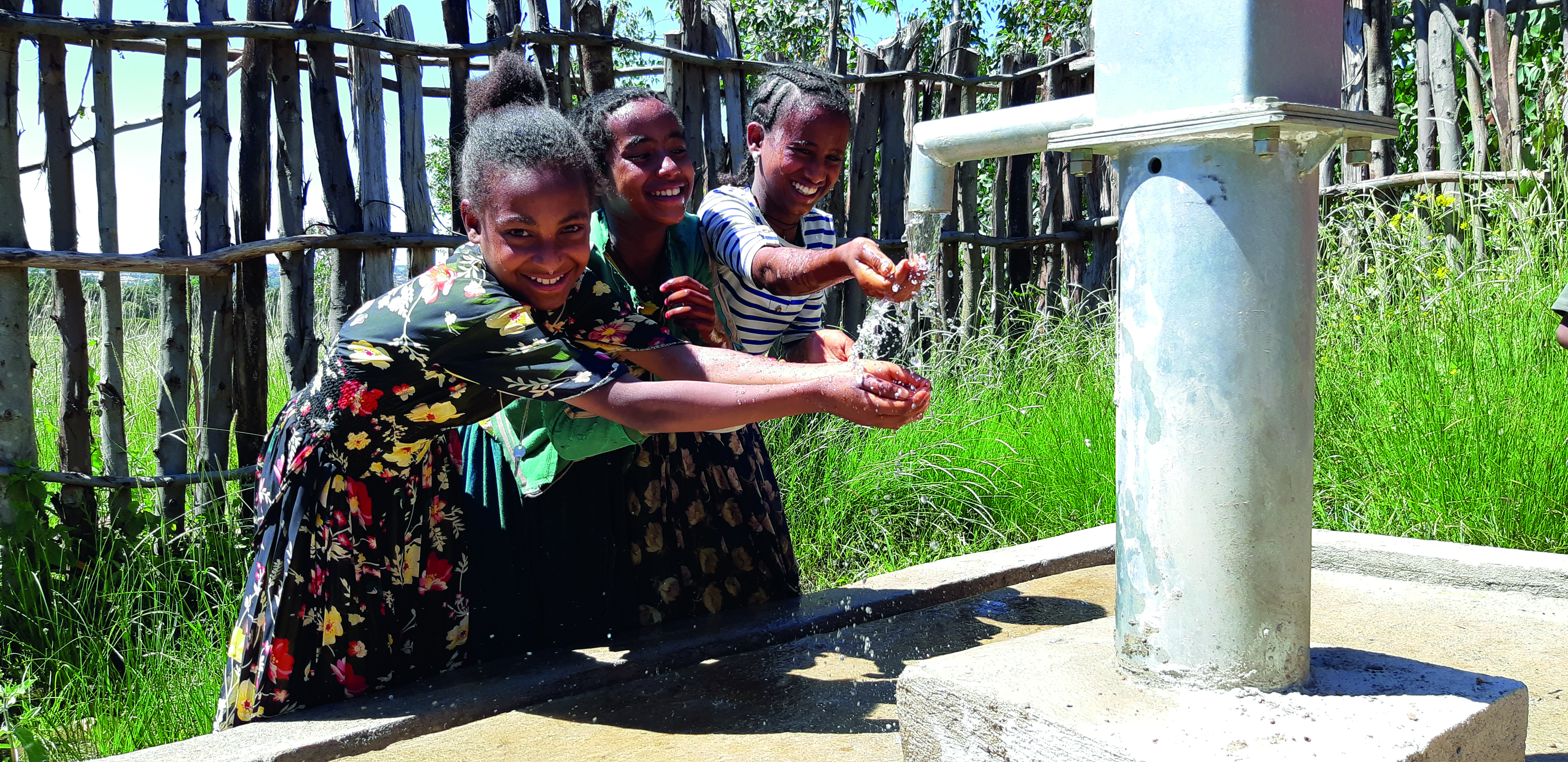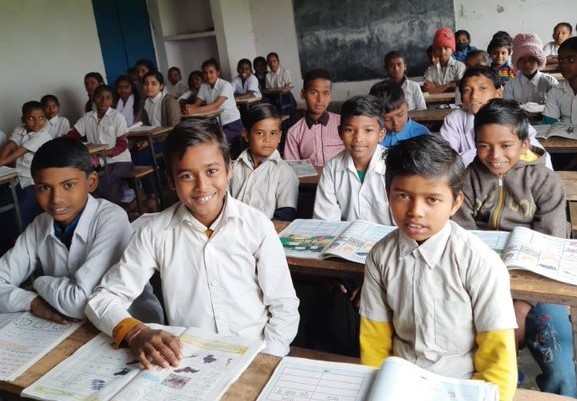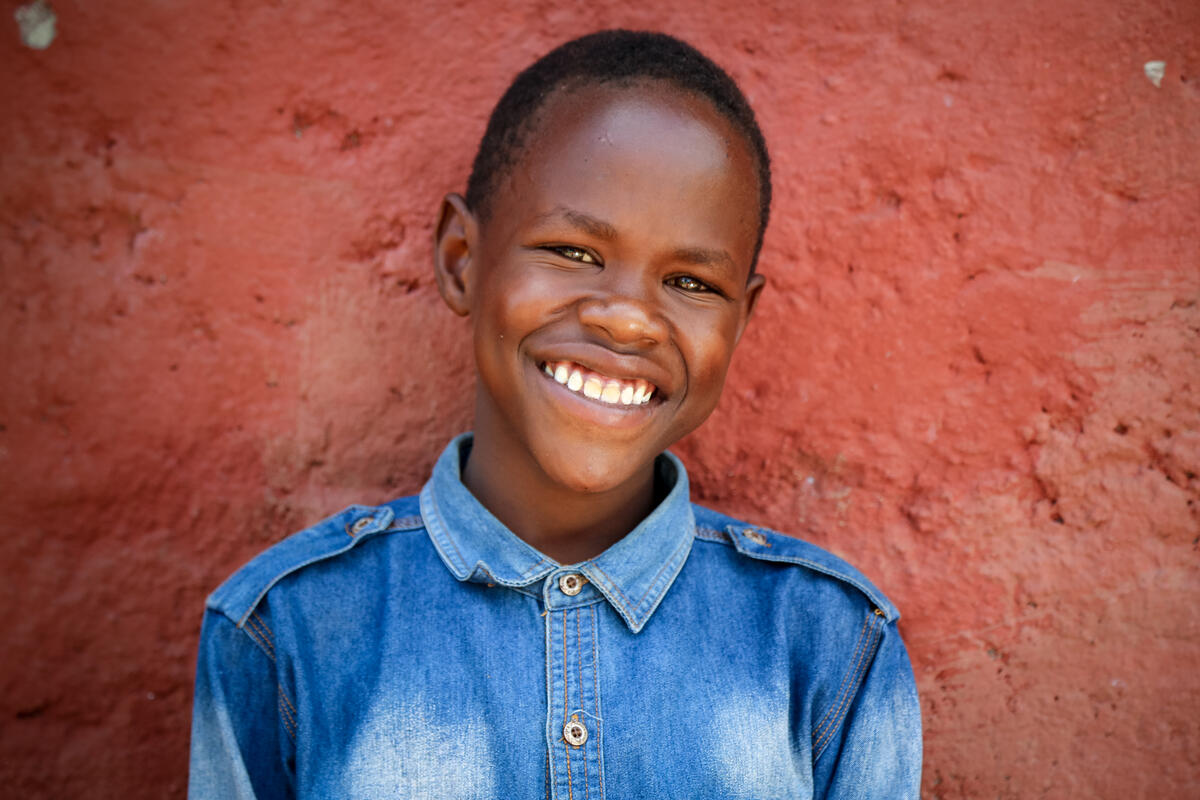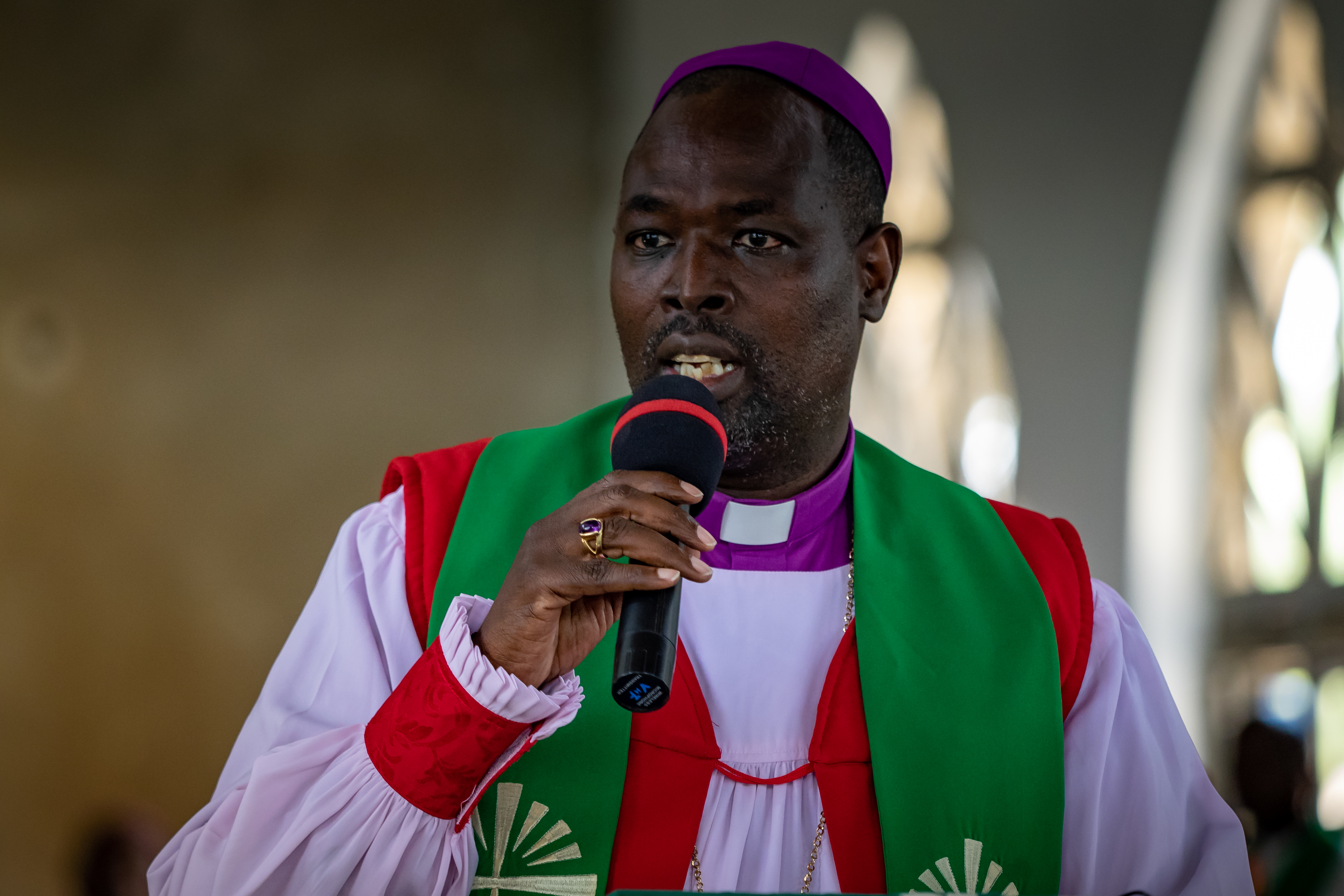
World of firsts: first school uniform
The door to success
This September, going back to school feels quite different.
But amongst this new school year’s questions, worries and unknowns, Jackson’s story shows that whatever the future has in store, education is vital.
It was a moment that said everything about Archbishop Jackson; the ‘bush boy’, who became head of Kenya’s Anglican church, thanks to the chance to learn in childhood.
At the retirement of a colleague, the Anglican bishop of Kisumu, the procession of dignitaries came forward. Suddenly a raucous, traditional welcome song started, and as Archbishop Jackson neared the musicians he broke into a shimmy and head nod instantly recognisable as a traditional Maasai dance move – the congregation broke out in cheers and applause.

Education is the key
Jackson Ole Sapit, Anglican Archbishop of Kenya believes his dramatic transformation started when he became a sponsored child through World Vision in 1975 and received his first new school uniform:
“When I grew up as a sponsored child and my school fees were paid and uniform brought to me, I came to realise that education plays a key role because that’s where you begin to open up the mind of the person into a total whole different worldview."
“It builds a capacity for one to be able to compete either in a job market or to engage in business or to move from one state of being to another.”
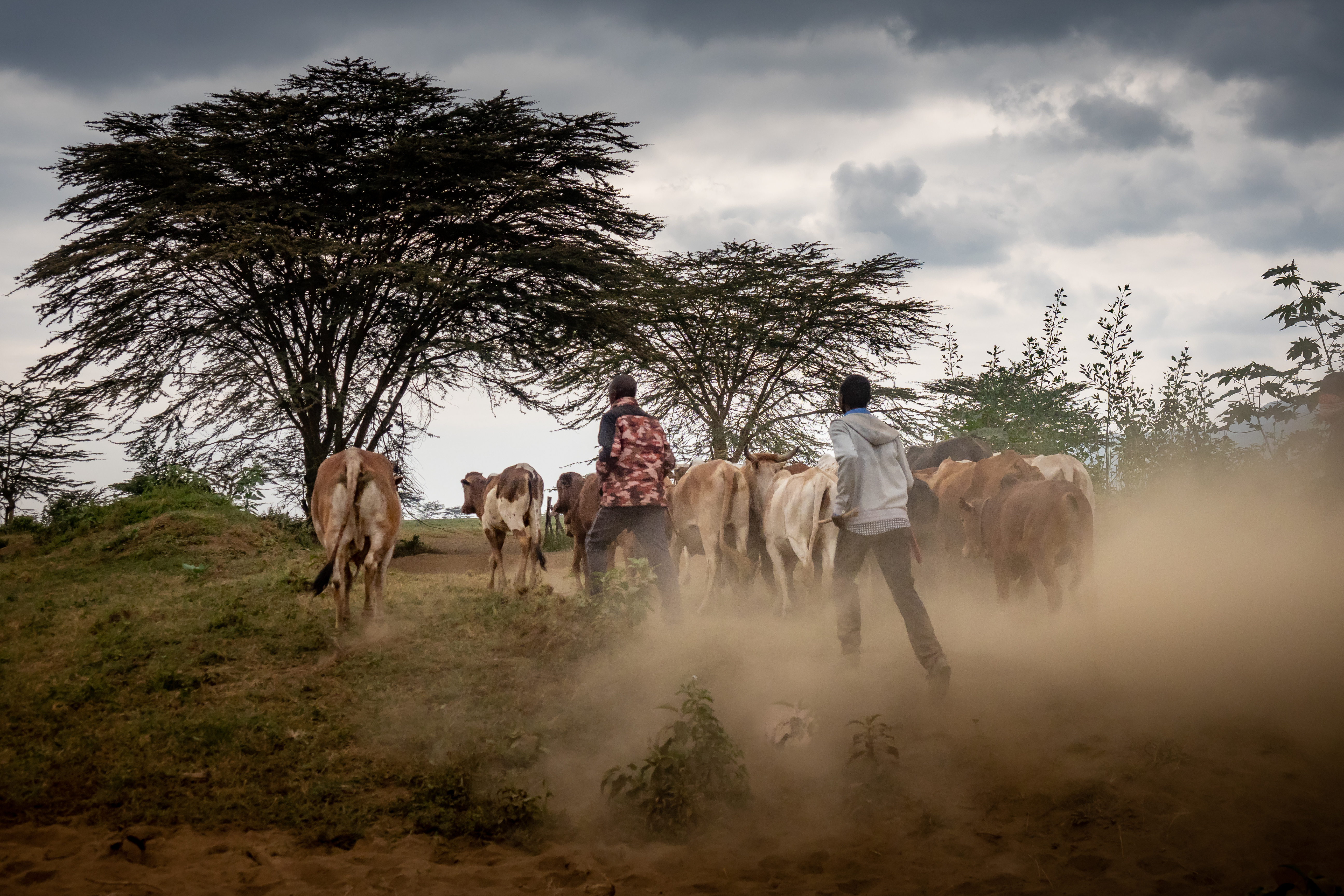
A difficult start
Jackson’s life could have been very different though. His early years marred by loss, poverty and injustice.
Tragically, his father died when he was four years old. He was too young to stop his older half-brothers who forced his mum and sisters from the increasingly valuable land.
Uncles on his mother’s side took the family in, but it was a hard life as young Jackson began settling into the Maasai ways.
“I grew up a herds boy, but I loved storytelling … the Maasai culture is very rich in storytelling,” Jackson says.
“The whole story is how to be tough, and before I knew anything about school, [I yearned] to become as great as other warriors that I heard in songs. My motivation was, ‘how do I take my mother back to fight for our right position in our home?’”
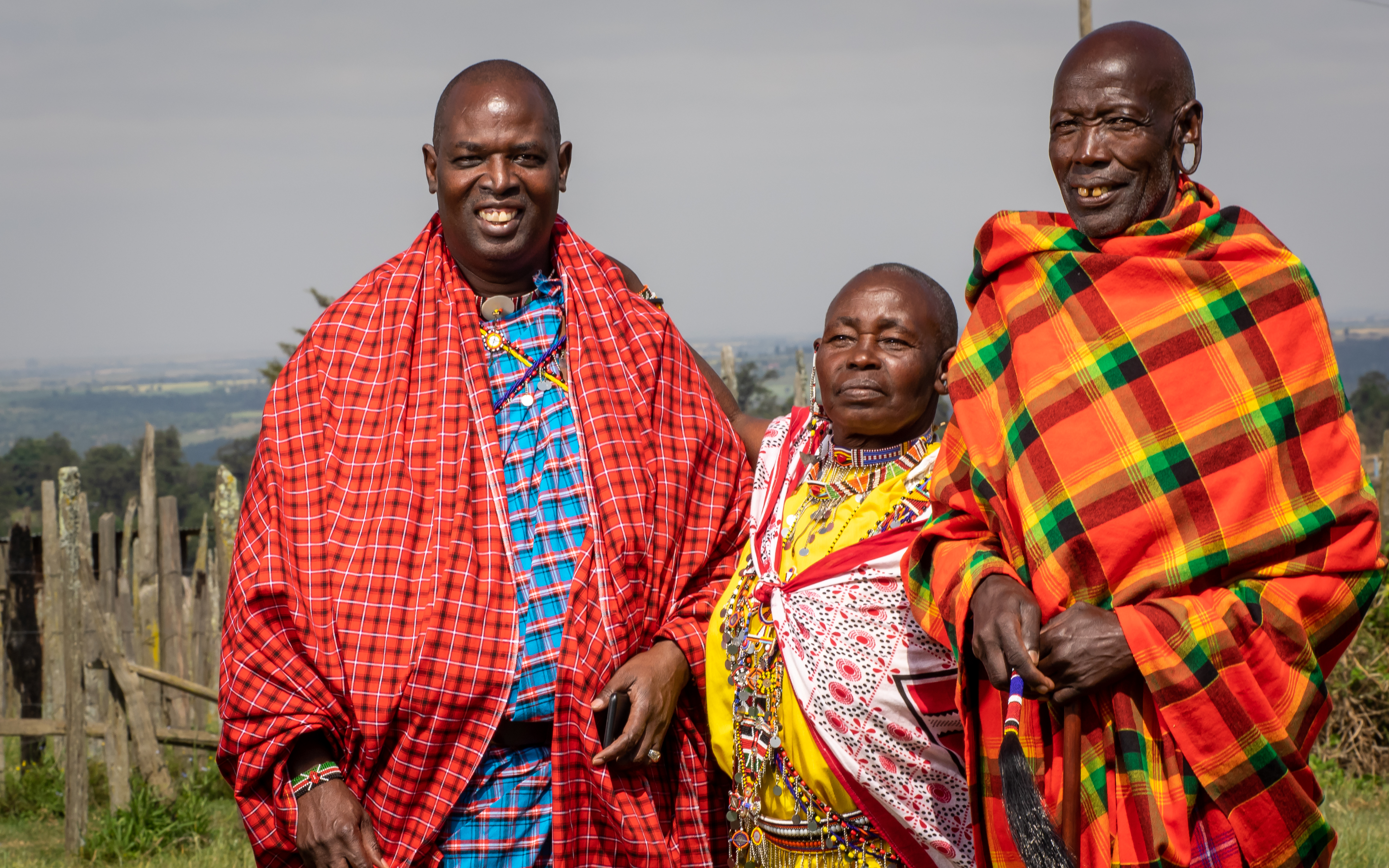
First school uniform
By law, boys were required to attend school, so Jackson went. But he didn’t take it that seriously.
One day, staff from World Vision came to the school. He signed up for sponsorship and soon, for the first time, he was given a new school uniform. And for the first time, he wore shoes. He loved the smell of newness of his backpack, and the oily, sweet smell of Kiwi shoe polish spoke to him of a potential he felt, but didn’t quite grasp.
Jackson’s attitude to school was shifting and he discovered he loved to read. He performed well enough that his teachers encouraged him to think of going to high school.
Being sponsored meant that his school fees were paid and uniforms provided, often barriers for many children to attend school.
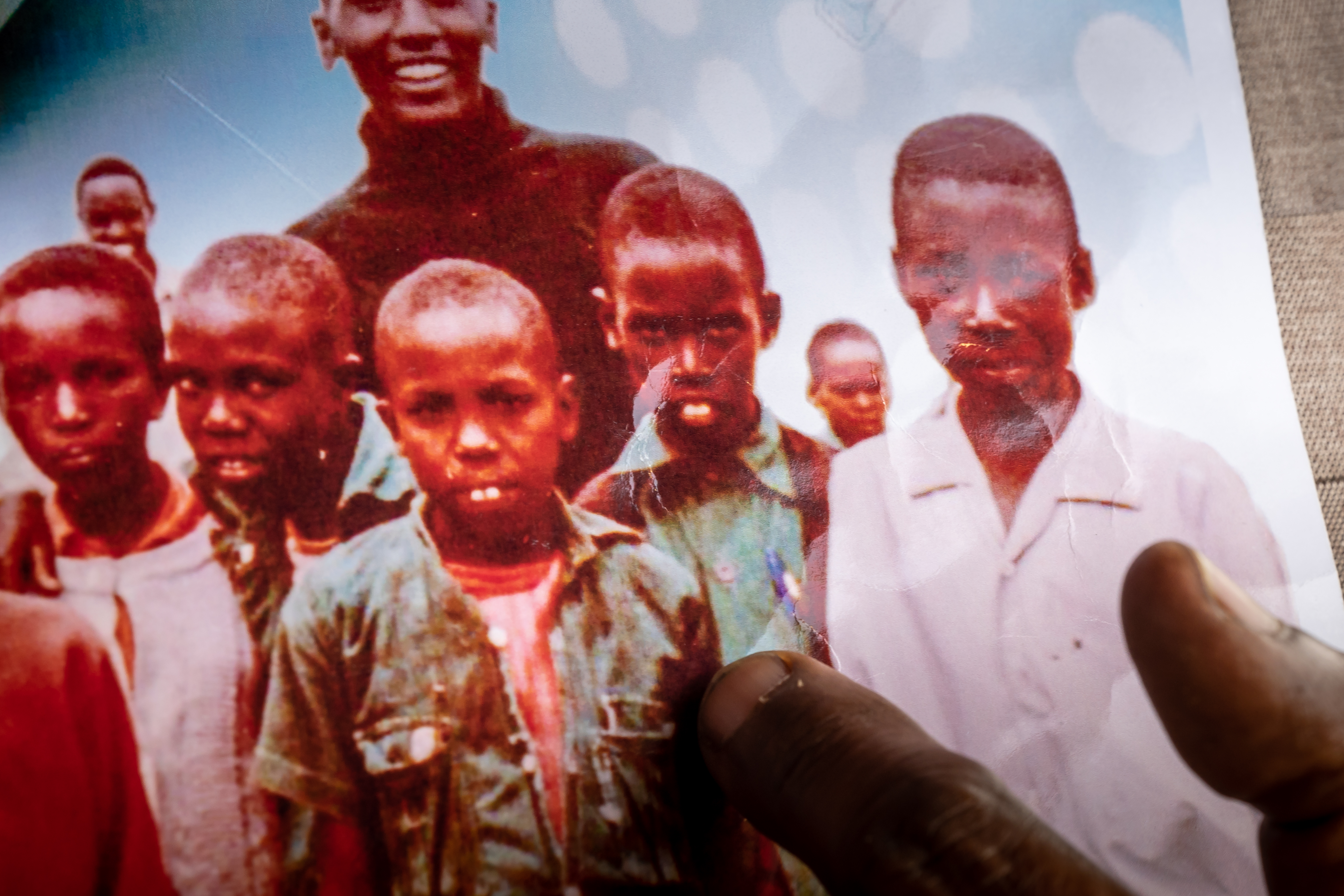
A new opportunity
Despite doing well in exams, Jackson was unsure of his next move after graduating high school. Instead of college, he returned home and took up herding, buying cattle in Narok and driving them to sell in Nairobi, a 10-day journey on foot.
One day a missionary came to the village and set up a health clinic for local Maasai. She needed someone who spoke English to translate to patients and help dispense medicine. Jackson’s schooling and love of language made him perfect for the job. The missionary also started a fellowship group, and she needed help translating her sermons. Jackson took on the role and found himself translating Bible passages from English to Maasai. But it was just a job to him.
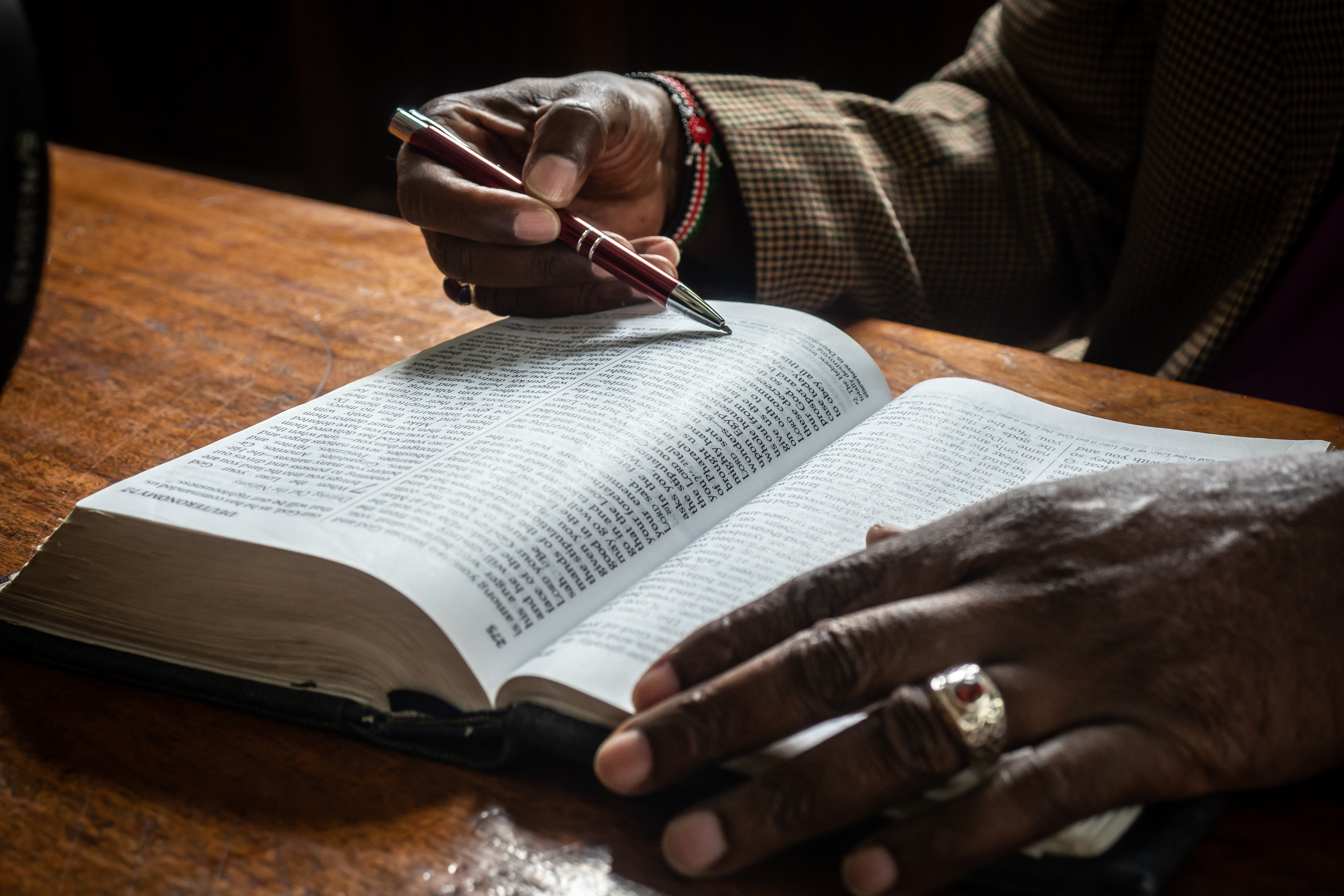
Rebuilding
One day going to the shopping centre, Jackson’s life changed. The two-hour walk took him through a forest where he paused and watched a spider rebuild its web in the branches.
He contemplated that his life now was like the spider web, broken.
“I began to see a very miserable person whose life is completely shattered and broken and has nothing to look forward to.”
“I began to look at my life. And I began to visualise my brokenness. And now, without a proper vision and where I’m headed, I began to think about my bitterness with my stepbrothers and where is that taking me.”
“Then I said, ‘Can this Jesus unburden me and give me a new future?’ So, I prayed for myself for the first time, and even in prayer I began to experience a different kind of feeling.”
Jackson was 21, it was 1985 and he was motivated not by bitterness but kindness and desire to help children learn.
“So, the whole story changed,” Jackson says. “I began now to see no bitterness, but I wanted to love others. I began now to trace my history back. I knew I was a sponsored child. Somebody must have paid my school fees for me to be the person I am, and therefore this new journey began, and new thinking began and completely turned around my mind, my thinking, and I began to see I am a person to help others.”
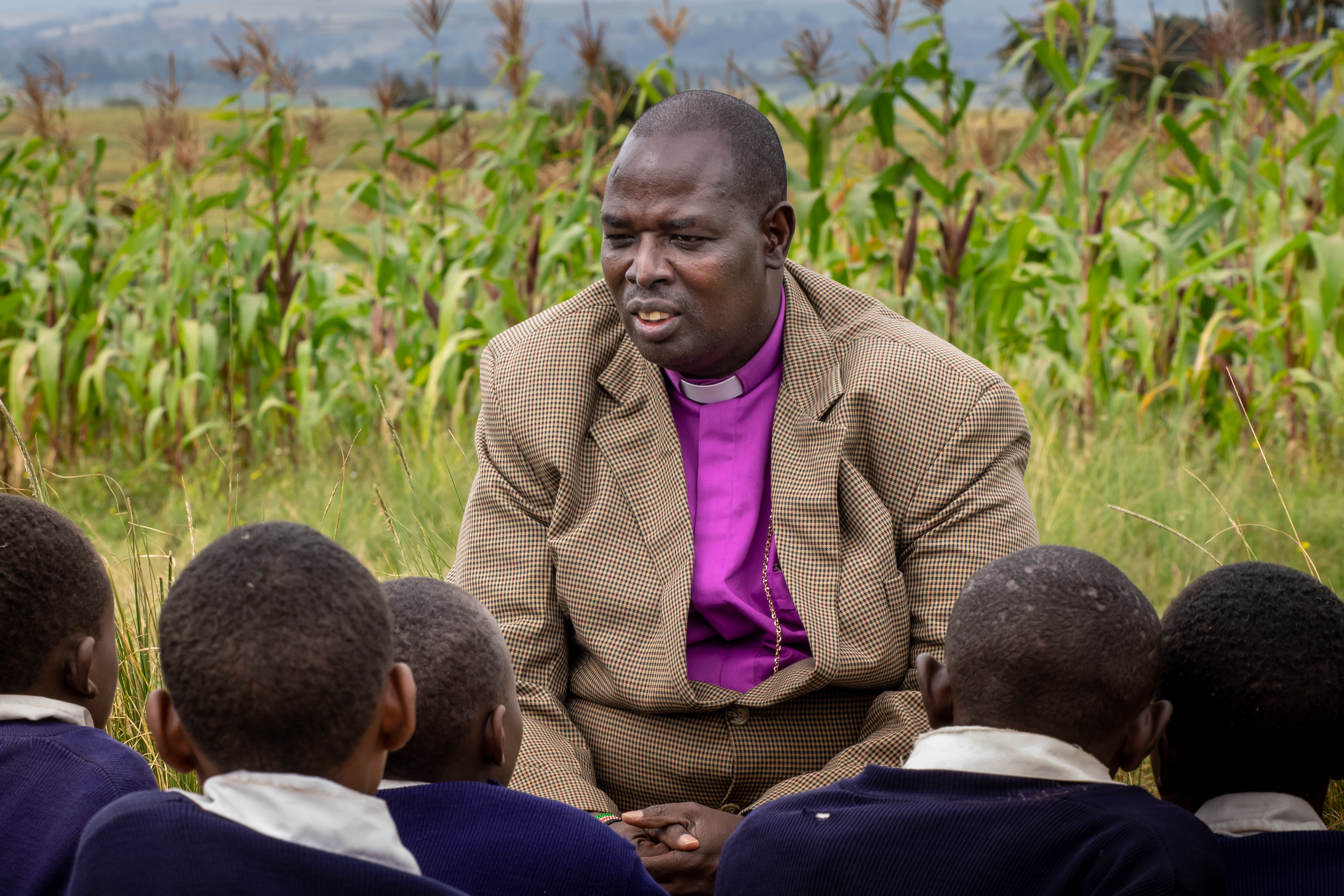
The ripple effect
Jackson has now been married for 30 years to Esther. They have seven children. He has travelled to every county in Kenya preaching peace. Through his actions, his background shines: This is a man who combines theology and development in a way that puts God and people first.
A programme he started years ago in Narok County helps about 3,000 orphaned and vulnerable children today. And some of those children have become adults in careers such as banking and other sectors of Kenya’s economy and they are making a difference in their own families and lives.
“And because they have been empowered, now they are out to empower others,” Jackson says. “That is the ripple effect such programmes have.
“I like a quote I read once: ‘You may not change the whole world, but you can change one child’s world, and that child with another child can change many, many other people’s lives.’
“And that’s what I’m doing currently, I’m blessing.”
He says his time as a sponsored child and experience with World Vision helped shape his vision for Kenya. “World Vision does community empowerment best,” he says. “We need to let people discover they are in relation to their environment, in relationship to God. They can envision their future, and World Vision can empower them.”

